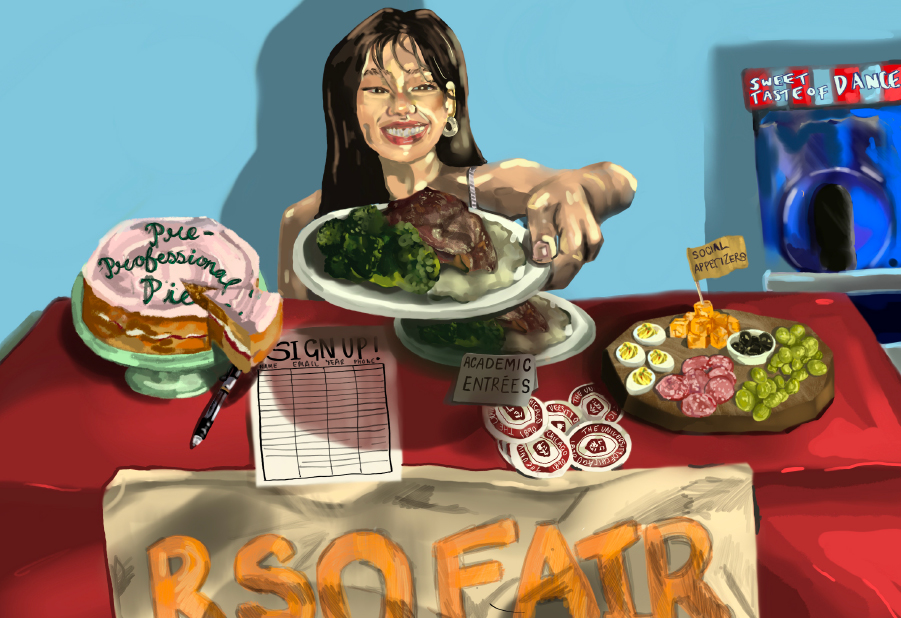The past several weeks have seen the Occupy Wall Street movement grow from a ragtag gathering in New York City to a nationwide phenomenon that has even inspired many U of C students to put aside their books and march. While the protesters and their supporters have a wide range of grievances, one major source of their appeal is clearly a widespread sense that the financial industry, whose incompetence sent the country into a severe and prolonged economic slump, has not borne its share of the losses.
In a period in which unemployment has remained around nine percent for months while financial firms’ share of overall corporate profits has soared to 31.7 percent, it’s hard not to sympathize with this anger. However, any desire to make Wall Street pay for its mistakes or even just prevent another crash must eventually reconcile itself to a bitter truth: There is actually relatively little that the government can do to protect the American economy from the next financial crisis, and the risk posed by large banks is one we must learn to live with.
The financial crisis of 2008 was caused primarily by large banks that borrowed excessively in order to purchase complex securities that seemed perfectly safe but were actually produced through a process that gave no one economic actor an interest in guaranteeing their value. Thus, the means of preventing a similar collapse might seem obvious: Regulate securitization to produce better incentives, and place tighter constraints on both the safety of large banks’ assets and the amount that they can borrow. The Dodd-Frank regulatory reform bill, passed in 2010, includes most of these elements. However, this approach is likely to fail because of a set of problems that inevitably afflict most regulatory agencies.
First, it is nearly impossible to write regulations as complex as the ones in question without giving the officials who must enforce them some discretion. Once regulators have discretion, however, they become vulnerable to manipulation by the industries they are supposed to be monitoring, and industry influence over regulators is nearly impossible to eliminate. The societal benefits generated by any given regulation are spread over a vast number of people, while its costs are concentrated in a much smaller group of people in the regulated industry. As a result, industry actors have a much stronger interest in trying to weaken regulations, which are generally written and enforced by obscure agencies that receive little media attention, than ordinary citizens have in ensuring that they are strong.
However, one might accept this argument and still believe that there are important measures the government could take to prevent another financial crisis. After all, many businesses in other economic sectors make bad bets and borrow too much, but these misjudgments typically do not cause massive declines in output and throw millions of Americans out of work. Problems in the financial sector had these effects because the major banks were so large and had so many links to firms in other sectors. This fact has led many to advocate a cap on the size of financial institutions; doing so would make sure, even when regulators are unable to prevent banks from making bad decisions, that those decisions would not affect the wider economy. But this argument relies on the mistaken assumption that large banks provide no economic advantages. It seems unlikely, though, that firms in a competitive marketplace would invest time and effort in expansion if doing so would not improve their ability to provide services that customers wanted. Since there is a market for the distinctive products that large banks provide, and since those products can be easily sold across borders, any effort to limit the size of banks in the United States would probably just make them relocate. And, in view of the strong ties that bind us to other economies, overseas moves by big banks would not reduce our vulnerability to financial crises.
These arguments do not mean that there can be no improvements to the pre-crisis status quo. The potential for industry capture can be constrained to some extent by limits on regulatory discretion, and regulation can also play an important role in providing information to consumers that is less vulnerable to the problems discussed above. The Dodd-Frank law represents an improvement on both counts. However, the points made above do suggest that the hunger for fundamental reform in the financial industry that Occupy Wall Street represents is likely to go unsatisfied. The movement presents itself as an army of epic heroes who will eventually overpower the thieves in the financial industry on behalf of the forgotten American majority. While this image has undeniable appeal, it seems more likely that they are heroes of a different kind—tragic ones, blinded by hubris, waging a doomed struggle against forces they can channel but never truly master.
Ajay Ravichandran is a fourth-year in the College majoring in philosophy.








